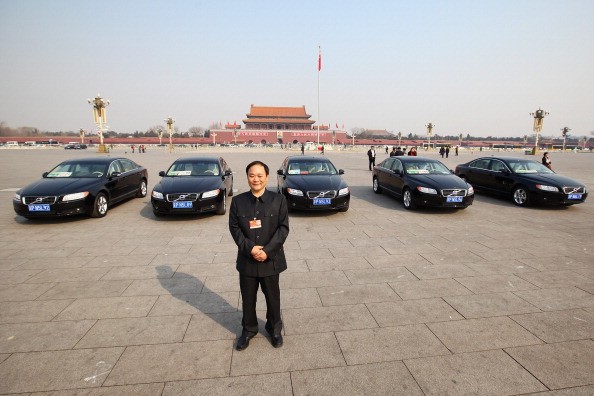Volvo is planning on launching an experiment putting 100 drivers in its self-driving cars in China, the Swedish automaker announced on Thursday.
The planned autonomous drive experiment will see local drivers test the cars on public roads including express roads and highways in everyday conditions, the company's executives said in an interview with Reuters.
"I think we need to build up (consumer) trust in the technology," Volvo's chief executive Hakan Samuelsson said. "So you have to bring it out and demonstrate it."
Samuelsson, who was in China earlier this week for a company event in Beijing, said Volvo is eyeing a target of 10 percent year-on-year sales growth in China for 2016.
The experiment is seen by analysts as part of Volvo's efforts to take advantage of the pledges central government officials in China, the world's biggest car market, have made to embrace futuristic technologies such as self-driving cars.
Volvo, which was purchased by China's Zhejiang Geely Holding Group Co. from Ford in 2010, is currently searching for a city that could provide the necessary permissions, regulations and infrastructure needed for the experiment, the company said.
"The challenges with the Chinese road transportation system are huge," said Erick Coelingh, head of Volvo's autonomous driving division, adding that self-driving cars may be part of the solution to these challenges.
Samuelsson said Volvo's proposed self-driving vehicles will resemble normal cars that display an alert when autopilot mode can be activated, such as on freeways or in specific zones like gated neighborhoods or public parks, to give the driver the option to maintain or relinquish control.
However, driverless cars that can be controlled without the use of steering wheels and can drive anywhere under any conditions will not be a reality in the near future, he added.
By calling on Chinese cities to participate in the program, Volvo wants to send a message to Chinese lawmakers to "step up to the plate" and honor its recent pledges of commitment to autonomous driving technologies, a Volvo executive familiar with the planned experiment told Reuters under the condition of anonymity.
The China experiment will be patterned after another similar testing program by Volvo in the Swedish city of Gothenburg, which aims to start deploying self-driving test vehicles next year.
"What we're doing is giving these cars to people and using real people as our data set, so the information they generate will help us implement the technology," said the executive.
In addition to Volvo, Tesla, Mercedes-Benz, Audi and Google have also been developing self-driving vehicles.
Samuelsson told Reuters that the company aims to sell 200,000 units in the Asia-Pacific region by 2020, a quarter of its planned global sales, with China making up most of the bulk. The automaker sold nearly 82,000 cars in China in 2015.






















